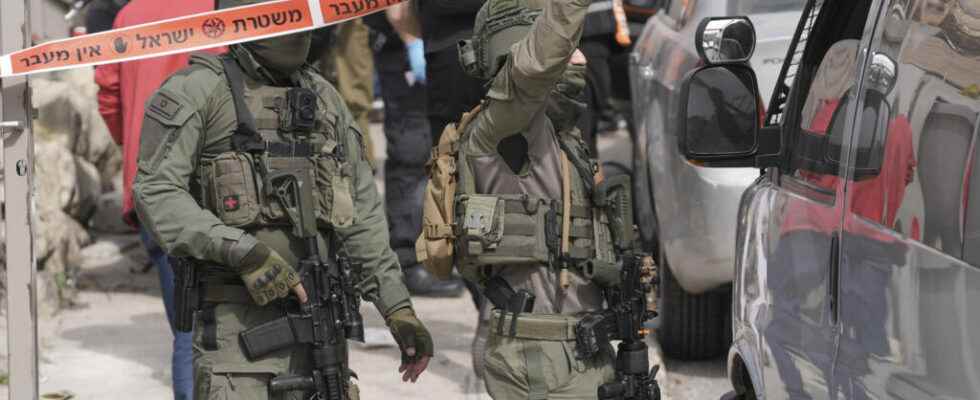For 48 hours, the climate in the Middle East between Israel and Palestine has experienced a brutal resurgence of tensions. A new attack on Saturday in East Jerusalem left two injured, the day after a shooting near a synagogue in which a Palestinian killed seven people. Resurgence of violence, Benyamin Netanyahu’s room for maneuver in the face of far-right ministers and a look back at the last weeks of violence in Jenin, Jean-Jean-Paul Chagnollaud, Emeritus Professor of Political Science at the University of Cergy-Pontoise and also president of the iReMMO (Institute for research and Mediterranean Middle East studies), deciphers the current situation.
RFI: As of last night, Israeli Prime Minister Benyamin Netanyahu promised immediate measures, which should be known this evening no doubt, no more details at this stage. What to expect?
Jean-Paul Chagnollaud : We must, unfortunately, expect what we have already seen very often, but perhaps even more intensely today, that is to say a cycle of reprisals, then violence which will come from those who have suffered repression and therefore an escalation of violence. We are really in a very classic pattern unfortunately. There is this violence that emanates from the Palestinians and in return, there is repression which will undoubtedly be very strong, especially with the current government. Thus, there will be other actions that will be carried out and so on. In other words, if we don’t see the political dimension of all this, if we don’t try to approach it from a political point of view, well, the violence will continue. It is unfortunately a classic. We must not forget that we are in a situation… that does not excuse anything in terms of violence, but it allows us to clearly show the context: the West Bank is an occupied territory, and East Jerusalem, which we are talking about, is also point of view of international law, an occupied territory and Gaza is enclosed. So we’re in a total impasse, a conflict between two peoples, that’s the real question, and so since young people have no perspective, some resist in this or that way, others come to these terrible acts.
Precisely, the age of the attackers of the two attacks, last night and this morning, raises questions: thirteen years old for one, twenty-one years old for the other, it is very young…
Yes, but I would be tempted to say that these are lost generations. If we take the young people who were, for example, twenty years old in 1990-1995 at the time of Oslo, they had a political perspective: they could think that one day they would have their own state, a Palestinian state alongside of the State of Israel. But those who were born around the year 2000, after the sinking of the second Intifada, have known only occupation and unbridled colonization – over the past twenty years, it has accelerated considerably. These young people, it’s terrible, because they commit acts which are obviously unacceptable from the point of view of a certain ethics, but at the same time, they know that they are going to die doing this, so that is also what to think about. They murder people and it’s absolutely reprehensible, of course, and at the same time they know they’re going to die. We have to wonder about this situation, about the soil that produces this situation. And this breeding ground, I repeat, is related to a completely blocked political situation, with in addition unbridled colonization.
Perhaps also the impression of a double standard from the point of view of the international community?
That is very clear because we forget that these are the occupied territories. That in no way justifies all these actions, we obviously agree, afterwards, there is a great debate on the level of tactics, on what to do when we are in an occupation situation, but it is necessary to restate the real problems. However, for years, you have known this very well, you have known to what extent the Palestinian question has been relayed to the margins. We didn’t worry about it anymore, there were other priorities.
It was Syria for a long time, today it is Ukraine, in short, there are plenty of reasons why we did not take care of the Palestinian question which, however, on a daily basis for years, has been experiencing terrible things. And then, suddenly, there is this eruption of violence, so suddenly, we start thinking about it.
Just a figure all the same to give a kind of barometer of the situation in the territories occupied by Israel: there were, during the year 2022, 200 deaths of young Palestinians killed by the Israeli army. We are therefore really in a situation of great tension, and the arrival of this far-right government, in particular the head of public security, Itamar Ben Gvir, is obviously not going to help things since it will push the repression at its maximum.
